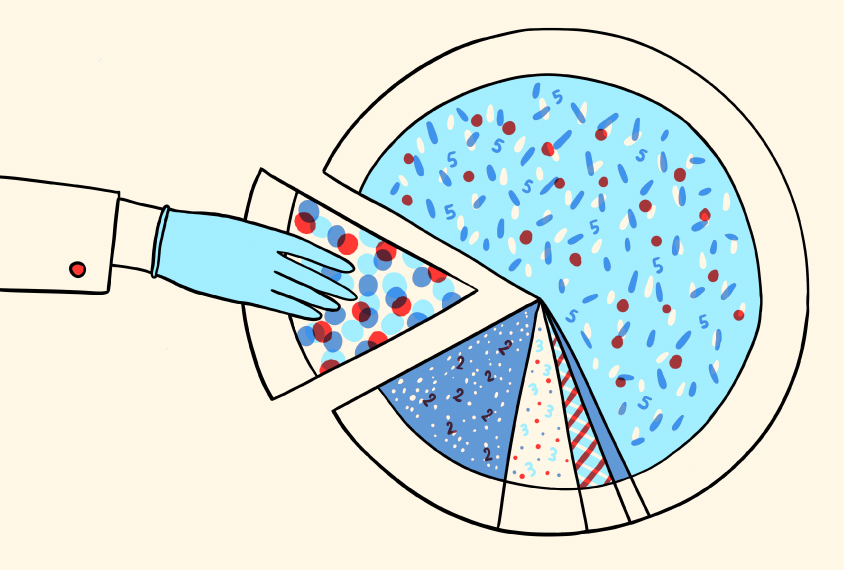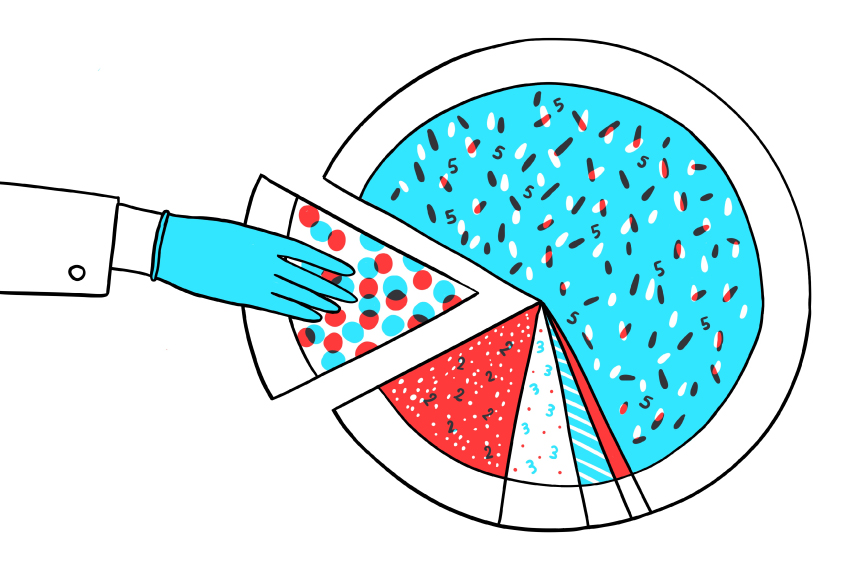By the numbers
Recent articles
By the Numbers: Suspensions, unemployment, health checks
This edition plots school suspensions and the unemployment gap for autistic people, and charts outcomes for those who attend regular health checks.

By the Numbers: Suspensions, unemployment, health checks
This edition plots school suspensions and the unemployment gap for autistic people, and charts outcomes for those who attend regular health checks.
By the Numbers: Services cliff, hospital costs, co-occurring ADHD
This edition of By the Numbers maps where the autism services cliff is steepest, plots hospital costs for autistic youth and charts the overlap of ADHD and autism.

By the Numbers: Services cliff, hospital costs, co-occurring ADHD
This edition of By the Numbers maps where the autism services cliff is steepest, plots hospital costs for autistic youth and charts the overlap of ADHD and autism.
By the Numbers: Mental health diagnoses, melatonin-tied polypharmacy, journal gender gap
This edition of By the Numbers plots the rising rates of mental health conditions over the past 50 years, prescribing patterns in New Zealand and the gender gap among neuroscience journal editors.

By the Numbers: Mental health diagnoses, melatonin-tied polypharmacy, journal gender gap
This edition of By the Numbers plots the rising rates of mental health conditions over the past 50 years, prescribing patterns in New Zealand and the gender gap among neuroscience journal editors.
By the Numbers: Autism funding over time, West African research, racial reporting
This edition of By the Numbers plots the rise of biology-centric autism grants, a dearth of West African autism research and the lack of racial data in intervention studies.

By the Numbers: Autism funding over time, West African research, racial reporting
This edition of By the Numbers plots the rise of biology-centric autism grants, a dearth of West African autism research and the lack of racial data in intervention studies.
By the Numbers: Unequal ABA access, autism incidence by insurance type, criminal charges counts
In this edition of By the Numbers, we discuss geographic disparities in access to behavior therapy, autism incidence among the privately or publicly insured and the rarity of criminal charges against autistic people in New Zealand.

By the Numbers: Unequal ABA access, autism incidence by insurance type, criminal charges counts
In this edition of By the Numbers, we discuss geographic disparities in access to behavior therapy, autism incidence among the privately or publicly insured and the rarity of criminal charges against autistic people in New Zealand.
Autism by the numbers: Explaining its apparent rise
Is autism really more common among children today than in generations past? This new downloadable book offers an in-depth guide to the various factors that have helped to drive autism prevalence numbers up.

Autism by the numbers: Explaining its apparent rise
Is autism really more common among children today than in generations past? This new downloadable book offers an in-depth guide to the various factors that have helped to drive autism prevalence numbers up.
By the Numbers: Autism in translation, rising prevalence figures, intelligence quotients
In this edition of By the Numbers, we discuss how translation alters a screening tool’s accuracy, the closing racial gap in autism prevalence numbers, and the preponderance of autism without intellectual disability.

By the Numbers: Autism in translation, rising prevalence figures, intelligence quotients
In this edition of By the Numbers, we discuss how translation alters a screening tool’s accuracy, the closing racial gap in autism prevalence numbers, and the preponderance of autism without intellectual disability.
By the Numbers: Black neuroscience speakers, mildly effective CBT, autism’s diagnostic odyssey
This edition of By the Numbers logs the continued underrepresentation of Black speakers at neuroscience meetings, mildly-effective cognitive behavioral therapy and early autism diagnoses.

By the Numbers: Black neuroscience speakers, mildly effective CBT, autism’s diagnostic odyssey
This edition of By the Numbers logs the continued underrepresentation of Black speakers at neuroscience meetings, mildly-effective cognitive behavioral therapy and early autism diagnoses.
By the Numbers: Preschool antipsychotics, COVID-19 vaccinations, delayed autism diagnoses
In this edition of By the Numbers, we discuss antipsychotic use among autistic preschoolers, coronavirus vaccination rates among autistic Israelis and autism diagnosis timelines.

By the Numbers: Preschool antipsychotics, COVID-19 vaccinations, delayed autism diagnoses
In this edition of By the Numbers, we discuss antipsychotic use among autistic preschoolers, coronavirus vaccination rates among autistic Israelis and autism diagnosis timelines.
By the Numbers: Machine learning, dementia link, antipsychotics while pregnant
In this edition of By the Numbers, we discuss machine learning for autism, early-onset dementia, and antipsychotic medicines during pregnancy.

By the Numbers: Machine learning, dementia link, antipsychotics while pregnant
In this edition of By the Numbers, we discuss machine learning for autism, early-onset dementia, and antipsychotic medicines during pregnancy.
Explore more from The Transmitter
New organoid atlas unveils four neurodevelopmental signatures
The comprehensive resource details data on microcephaly, polymicrogyria, epilepsy and intellectual disability from 352 people.

New organoid atlas unveils four neurodevelopmental signatures
The comprehensive resource details data on microcephaly, polymicrogyria, epilepsy and intellectual disability from 352 people.
Can neuroscientists decode memories solely from a map of synaptic connections?
Five experts discuss the progress, possibilities and hurdles of decoding a “nontrivial” memory from an organism just by analyzing its brain connectivity patterns.
Can neuroscientists decode memories solely from a map of synaptic connections?
Five experts discuss the progress, possibilities and hurdles of decoding a “nontrivial” memory from an organism just by analyzing its brain connectivity patterns.
AI-assisted coding: 10 simple rules to maintain scientific rigor
These guidelines can help researchers ensure the integrity of their work while accelerating progress on important scientific questions.

AI-assisted coding: 10 simple rules to maintain scientific rigor
These guidelines can help researchers ensure the integrity of their work while accelerating progress on important scientific questions.